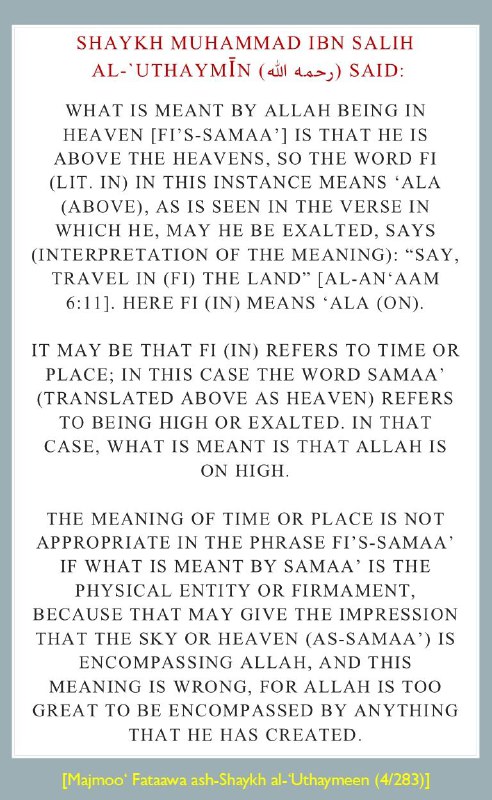Islamic Biographies
Community chat: https://t.me/hamster_kombat_chat_2
Website: https://hamster.network
Twitter: x.com/hamster_kombat
YouTube: https://www.youtube.com/@HamsterKombat_Official
Bot: https://t.me/hamster_kombat_bot
Last updated 11 months, 2 weeks ago
Your easy, fun crypto trading app for buying and trading any crypto on the market.
📱 App: @Blum
🤖 Trading Bot: @BlumCryptoTradingBot
🆘 Help: @BlumSupport
💬 Chat: @BlumCrypto_Chat
Last updated 1 year, 4 months ago
Turn your endless taps into a financial tool.
Join @tapswap_bot
Collaboration - @taping_Guru
Last updated 12 months ago



Ziyad waited for reinforcements before attacking the rebels.
Al-Ash'ath at first managed to defeat the larger Muslim army, whose ranks included many Kindites from the large Sakun division, at the valley of Zurqan. Afterward, the arrival of further Muslim forces under Ikrimah ibn Abi Jahl رضي الله عنه prompted al-Ash'ath to lead his men and their families to barricade in the fortress of al-Nujayr, where they were besieged by the Muslim forces. Al-Ash'ath secured safe passage for a number of his relatives, but the rest of the besieged fighters were executed. He was spared but taken captive and sent to Caliph Abu Bakr رضي الله عنه, who agreed to release him after he repented. He thereafter took up residence in Medina, capital of the caliphate, where he was married to Abu Bakr's رضي الله عنه sister, Umm Farwa رضي الله عنها. This was a rare honor, and none of the other leaders of the Ridda wars were similarly treated. As al-Ash'ath's principal wife, Umm Farwa bore him five children, including his oldest son, Muhammad.
Reinforcements were on the way. al-Muhajir ibn Abi Umayya, the last of the corps commanders to be dispatched by Abu Bakr رضي الله عنه, defeated some rebel tribes in Najran, south-eastern Arabia, and was directed by Abu Bakr to march to Hadhramaut and join Ziyad against the Kinda. The Caliph also instructed Ikrimah رضي الله عنه, who was at Abyan, to join Ziyad and Muhajir's forces.
In late January 633, the forces of Muhajir and Ziyad combined at Zafar, capital of Hadhramaut, under the overall command of the former, and defeated al-Ash'ath, who retreated to the fortified town of Nujair.
Just after this battle, the corps of Ikrimah رضي الله عنه also arrived. The three Muslim corps, under the overall command of Muhajir, advanced on Nujair and laid siege to the fortified city.
Nujair was captured some time in mid-February 633. With the defeat of the Kinda at Nujair, the last of the great rebel movements collapsed. Arabia was re-established as predominantly Islamic.
The Campaign of the Apostasy was fought and completed during the 11th year of the Hijra. The year 12 Hijri dawned on March 16, 633, with Arabia united under the central authority of the Caliph Abu Bakr رضي الله عنه at Madinah.
Here's a brief overview of his involvement:
Early Campaigns: Ikrimah رضي الله عنه participated in early campaigns against various rebel tribes that had apostatized after the Prophet Muhammad's ﷺ death. He fought with distinction and contributed to the suppression of these rebellions.
The Battle of Yamama: One of the most crucial battles of the Ridda Wars was the Battle of Yamama against the false prophet Musailimah (Musailimah al-Kadhāb – the liar who claimed prophethood).
Ikrimah رضي الله عنه was initially sent to confront Musailimah but was defeated. However, this defeat did not diminish his valor or his commitment to the cause of Islam.
[To Be Continued…]
May Allāh سُبْحَانَهُ وَتَعَالَى Shower His Blessings on the Prophet Muhammad ﷺ and his Companions.
اَللّٰهُ أَعْلَم
(To be continued…)
ان شاء الله ﺗﻌﺎﻟﯽٰ
Please Share
? Facebook: https://fb.me/BiographiesIslamic
? Telegram: https://t.me/BiographiesIslamic
Oman
[Battle of Dibbā]
In mid-September 632, Abu Bakr رضي الله عنه dispatched Hudaifa bin Mihsan's رضي الله عنه corps to tackle the rebellion in Oman, where the dominant tribe of Azd had revolted under their chief Laqeet bin Malik, known more commonly as "Dhu'l-Taj" ("the Crowned One"). According to some reports, he also claimed prophethood.
Hudaifa رضي الله عنه entered Oman, but not having sufficient strength to fight Dhu'l-Taj, he requested reinforcements from the Caliph, who sent Ikrimah رضي الله عنه from Yamamah to aid him in late September. The combined forces then defeated Dhu'l-Taj at a battle at Dibba, one of Dhu'l-Taj's strongholds, in November. Dhu'l-Taj himself was killed in the battle.
Hudaifa رضي الله عنه was appointed governor of Oman and set about the re-establishment of law and order. Ikrimah رضي الله عنه, having no local administrative responsibility, used his corps to subdue the area around Dibbā, and, in a number of small actions, succeeded in breaking the resistance of those Azd who had continued to defy the authority of Madinah.
Yemen
Yemen had been the first province to rebel against the authority of Islam when the tribe of Ans rose in arms under the leadership of its chief and rival prophet Al-Aswad Al-Ansi, the Black One (Abhala bin Ka'b al-Aswad al-Ansi – the self-proclaimed prophet). Yemen was controlled then by Al-Abna', a group descended from the Sasanian Persian garrison in Sanaa. When Badhan died, his son Shahr partially became governor of Yemen but was killed by Al-Aswad. Al-Aswad was later killed by Fayrūz al-Daylamī al-Himyarī رضي الله عنه, also an abna' member, who was sent by the Prophet ﷺ, and thereafter Fayrūz رضي الله عنه acted as governor of Yemen at San'a.
Second Rebellion of Yemen
In the later phase after the death of Aswad al-Ansi, two Yemenite chieftains, Amr ibn Ma'adi Yakrib and his nephew, Qays ibn Makshuh revolted against Fayrūz al-Daylamī al-Himyarī رضي الله عنه. At first, Amr and Qays supported the caliphate suppression of Aswad rebellion. However, both Amr and Qays later revolted against the caliphate as both did not agree with new administrator appointed by the caliph, thus they seceded from leadership of Farwah, who acted as their region's governor at the time. Amr and Qays ibn Maksuh then conspired to kill three caliphate deputies in Yemen.
A caliphate commander Al-Muhajir ibn Abi Umayya led the Al-Abna' opposing Qays. Ultimately, the forces of Qays and Amr were defeated by the force of Ikrimah ibn Abi Jahl رضي الله عنه. Amr and Qays were said to be captured by Fayruz al-Daylami رضي الله عنه. According to the record of Usd al-ghabah fi marifat al-Saḥabah, Amr came to Medina as a prisoner, guarded by a caliphate soldier named Al-Muhajir ibn Abi Umayya. Amr was then brought before Caliph Abu Bakr رضي الله عنه, who invited him to rejoin Islam, to which Amr agreed. Thus, Amr was pardoned by the caliph.
Mahra
From Oman, following the orders of Abu Bakr رضي الله عنه, Ikrimah رضي الله عنه marched to Mahra to join Arfaja bin Harthama رضي الله عنه. As Arfaja رضي الله عنه had not yet arrived, Ikrimah رضي الله عنه, instead of waiting for him, engaged the local rebels on his own.
At Jairut, Ikrimah رضي الله عنه met two rebel armies preparing for battle. Here he persuaded the weaker to embrace Islam and then joined up with them to defeat their opponents. Having re-established Islam in Mahra, Ikrimah رضي الله عنه moved his corps to Abyan, where he rested his men and awaited further developments.
Hadhramaut
The last of the great revolts against Islam was that of the powerful tribe of Kinda, who inhabited the region of Najran, Hadhramaut, and eastern Yemen. They did not revolt until January 633.
Ziyad bin Lubaid, Muslim governor of Hadhramaut, operated against them and raided Riyaz, after which the whole of the Kinda broke into rebellion under al-Ash'ath ibn Qays and prepared for war. However, the strength of the two forces, i.e. the rebel forces and Muslim forces, was so well balanced that neither side felt able to start serious hostilities.
Biography – 166 [Part - 3]
الحمد لله ربّ العالمين
COMMANDERS OF THE MUSLIM ARMY AMONG THE COMPANIONS OF THE PROPHET ﷺ
'Ikrimah bin Abi Hishām رضي الله عنه
After the death of the Prophet ﷺ, Abu Bakr رضي الله عنه became caliph (leader of the Muslim community) and appointed Ikrimah رضي الله عنه to lead a campaign against rebel Arab tribes in the Ridda wars (apostasy wars), which saw him command expeditions around the entire Arabian Peninsula, with particular focus in Yemen.
Ikrimah رضي الله عنه played a significant role in the Ridda Wars, though his contributions were not as extensive as in later battles like Yarmouk. He was a skilled warrior and a loyal follower of the first Caliph, Abu Bakr رضي الله عنه.
Abu Bakr رضي الله عنه distributed the available manpower among 11 main corps, each under its own commander, and bearing its own standard. The available manpower was distributed among these corps, and while some commanders were given immediate missions, others were given missions to be launched later. Some of the commanders and their assigned objectives were:
Khalid Ibn Walid رضي الله عنه: Move against Tulaiha bin Khuwailad Al-Asdee (طُلیحة بن خویلد الاسدی) from the Asad Tribe (بنو اسد) at Buzaakhah (بزاخة), then Banu Sulaim.
Ikrimah ibn Abi-Jahl رضي الله عنه: Confront Musailimah at Yamamah but not to engage until more forces were built up.
Amr ibn al-As رضي الله عنه: The rebel tribes of Quza'a and Wadi'a in the area of Tabuk and Daumat-ul-Jandal.
Shurahbil ibn Hasana رضي الله عنه: Follow Ikrimah رضي الله عنه and await the Abu Bakr’s رضي الله عنه instructions.
Arfajah رضي الله عنه: The rebels in Mahra.
Hudhaifa bin Mihsan رضي الله عنه: The rebels in Oman.
As soon as the organization of the corps was complete, Khalid رضي الله عنه marched off, to be followed a little later by Ikrimah رضي الله عنه and 'Amr ibn al-'As رضي الله عنه. The other corps were held back by the caliph, Abu Bakr رضي الله عنه and dispatched weeks and even months later, according to the progress of Khalid's رضي الله عنه operations against the hard core of enemy opposition.
Before the various corps left Dhu Qissa, however, envoys were sent by Abu Bakr رضي الله عنه to all rebel tribes in a final attempt to induce them to submit.
Battle of al-Yamama
Ikrimah ibn Abi-Jahl رضي الله عنه, one of the corps commanders, was instructed to make contact with Musailimah (Musailimah al-Kadhāb – the liar who claimed prophethood) at Yamamah, but not to engage until Khalid joined him رضي الله عنه. Abu Bakr's رضي الله عنه intention in giving Ikrimah رضي الله عنه this mission was to tie Musailimah down at Yamamah, thereby freeing Khalid رضي الله عنه to deal with the rebel tribes of north-central Arabia without interference.
Meanwhile, Abu Bakr رضي الله عنه sent Shurhabil's رضي الله عنه corps to reinforce Ikrimah رضي الله عنه at Yamamah. Ikrimah رضي الله عنه, however, in early September 632, attacked Musaylima's forces before the reinforcements arrived, and was defeated. He reported his actions to Abu Bakr, who, ordered him to proceed with his force to Oman to assist Hudaifa رضي الله عنه; once Hudaifa رضي الله عنه had completed his task, he was to march to Mahra to help Arfaja رضي الله عنه, and thereafter go to Yemen to help Muhajir.
Meanwhile, Abu Bakr رضي الله عنه sent orders to Khalid to march against Musaylima. Shurhabil's corps, stationed at Yamamah, was to reinforce Khalid's corps. In addition to this, Abu Bakr assembled a fresh army of Ansar and Muhajireen in Medina that joined Khalid's corps at Butah before the combined force set out for Yamamah.
Though Abu Bakr رضي الله عنه had instructed Shurhabil not to engage Musaylima's forces until Khalid's arrival, Shurhabil engaged Musaylima's forces anyway and was defeated. Khalid linked up with the remnants of Shurhabil's corps early in December 632.
The combined force of Muslims, now 13,000 strong, finally defeated Musaylima's army in the Battle of Yamama, which was fought in the third week of December. The fortified city of Yamamah surrendered peacefully later that week.



During the Battle of the Trench (Ghazwat al-Khandaq/Battle of Khandaq) in 627, Safiyya رضي الله عنها was among the Muslim women who were placed for safety in Fari, the fortress of Hassan ibn Thabit رضي الله عنه. Safiyyah noticed a Jew in the grounds of the fortress and "feared that he would discover our weakness and inform the Jews who were in our rear while the apostle and his companions were too occupied to help us."
She told Hassan to go down and kill him. When Hassan hesitated, she went down "stealthily", opened the door "little by little" until she could creep up behind the spy, then hit him with a club and killed him.
[To Be Continued…]
May Allāh سُبْحَانَهُ وَتَعَالَى Shower His Blessings on the Prophet Muhammad ﷺ and his Companions.
اَللّٰهُ أَعْلَم
(To be continued…)
ان شاء الله ﺗﻌﺎﻟﯽٰ
Please Share
? Facebook: https://fb.me/BiographiesIslamic
? Telegram: https://t.me/BiographiesIslamic
Community chat: https://t.me/hamster_kombat_chat_2
Website: https://hamster.network
Twitter: x.com/hamster_kombat
YouTube: https://www.youtube.com/@HamsterKombat_Official
Bot: https://t.me/hamster_kombat_bot
Last updated 11 months, 2 weeks ago
Your easy, fun crypto trading app for buying and trading any crypto on the market.
📱 App: @Blum
🤖 Trading Bot: @BlumCryptoTradingBot
🆘 Help: @BlumSupport
💬 Chat: @BlumCrypto_Chat
Last updated 1 year, 4 months ago
Turn your endless taps into a financial tool.
Join @tapswap_bot
Collaboration - @taping_Guru
Last updated 12 months ago